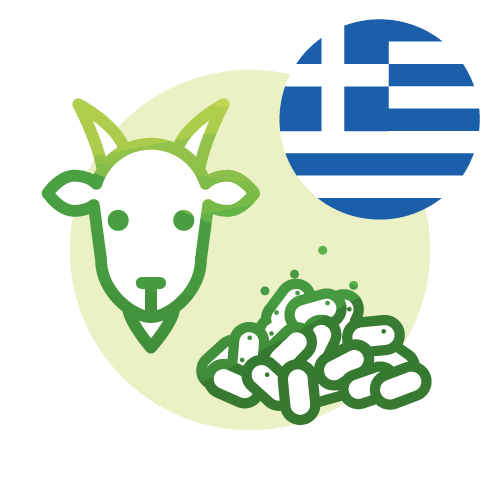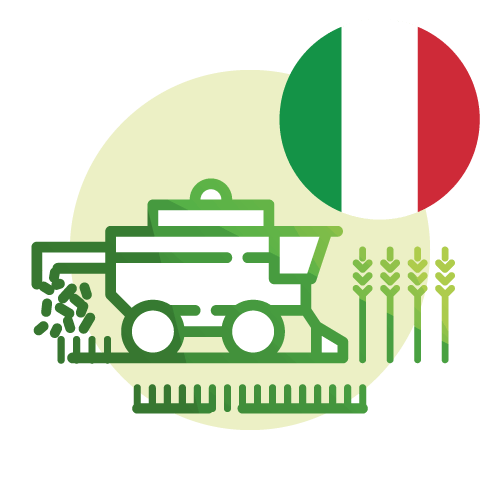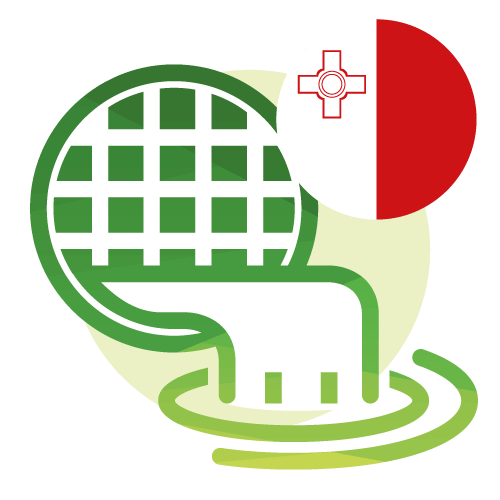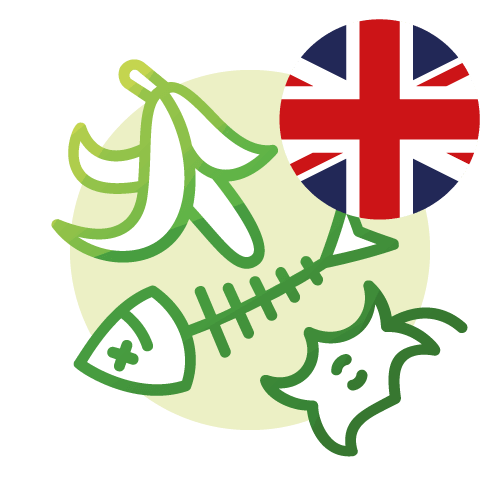Demo countries
NOMAD has selected four pilot sites across the EU to test the versatility of the technology in different geographical locations, climates and soil conditions. The tests are tailored to country-specific challenges and end-user requirements. This will also help to identify specific digestate and regulatory bottlenecks.

Greece
Digestate type:
Animal residues and manure
Issues
Regulatory bottlenecks
Lack of knowledge
Challenging geography
Opportunities
Tech validated on difficult terrain
Raised awareness
Policy recommendations
The pilot site is located in Western Macedonia, in the north-east of Greece. The region consists of the prefectures of Grevena, Kastoria, Kozani, Florina and has a total area of 9451 km2 with about 282,000 inhabitants.
Throughout the country there are 29 biogas plants, with more under construction. The use of fermentation residue is already an important factor in this region due to numerous legal and operational issues. Although the biogas sector has grown strongly in recent years, there have been setbacks with the use of digestate, already a major issue in this region due to numerous legislative and operational issues. Finding a viable solution for digestate is therefore crucial for the country to ensure that the nutrients are fully recovered and that a circular economy practice is adopted.
The Greek demonstration will recover various feriliser compounds from the liquid fraction of digestate. The solid digestate fractions will be composted with other waste by-products, which currently end up in landfill and tested for local food production purposes.

Italy
Digestate type:
Crop waste
Issues
Stringent regulations
Exaggerated AD H&S and environmental concerns
Opportunities
Evidence for policymakers
Dispel AD myths
Prove full marketability in challenging context
The pilot site is in Italy’s central Lazio region. Lazio has an area of over 17,000 km2 with over 5 million inhabitants.
The existing legislation on waste management, construction and operation of AD plants is the strictest in Europe. There is widespread political and public scepticism about the environmental safety of the technology. The opportunity to involve local stakeholders in this project could positively influence public perception, help dispel the myths around the technology and affect crucial future policy decisions.
The demonstration will run in conjunction with controlled growing trials supervised by the University of Florence to evaluate GHG emissions.
Successfully testing the NOMAD method in a country with strict regulations and a relatively controversial attitude towards AD, build a compelling case for the marketability of the solutions throughout Europe.

Malta
Digestate type:
Municipal wastewater
Issues
10t/day landfilled
Small island, limited resources
Digestate ban on land
Drinking water contamination risk
Opportunities
Divert digestate from landfill
Reduce GHG emissions
Recover water for reuse
Malta is a small island country in the Mediterranean Sea. It has an area of 316 km2 with a population of about 490.000.
The pilot site offers an interesting contrast to the other sites as it is a small island with dry soil conditions and limited space for growing food.
At present, there are no on-farm anaerobic digestion plants in Malta however, NOMAD offers the opportunity to demonstrate the potential benefits of a circular approach for farmers by using digestate from municipal wastewater treatment.
Currently, 10-15 tonnes digested sludge is disposed of in landfills. This exacerbates the country’s limited landfill capacity and results in a loss of nutrients and powerful greenhouse gas emissions.
The use of manure on land has been banned due to nitrate leaching into the water table – a major source of drinking water and manure is now the single largest fraction of organic waste sent to landfill.
The organic fertilisers and compost produced during the demonstration will be tested on the island, and recovered water analysed for potability, as Malta´s supply is limited.

United Kingdom
Digestate type:
Food waste
Issues
Rising disposal costs
Reduced government incentives
Cold climate
Opportunities
Demonstrate cost reductions
Improve viability of small-scale AD
Test thermal efficiency
Trial rural-urban scenario
At the British pilot site NOMAD will process digestate at a large AD plant on the outskirts of London as well as collecting digestate from a small network of inner-city AD plants, producing high-value fertiliser and soil amenders for use in urban and peri-urban farms.
It will reduce digestate disposal costs for the large plant, while eliminating the need for on-site pasteurization and reducing digestate storage requirements for small plants. The resulting lower capital and running costs could open up a new market for smaller AD sites in rural and urban locations.
As a bio-regional model, NOMAD´s mobile solution would link peri-rural and urban activities to strenghten fragile rural economies and ensure urban and peri-urban to manage organic resources sustainability more coherently.